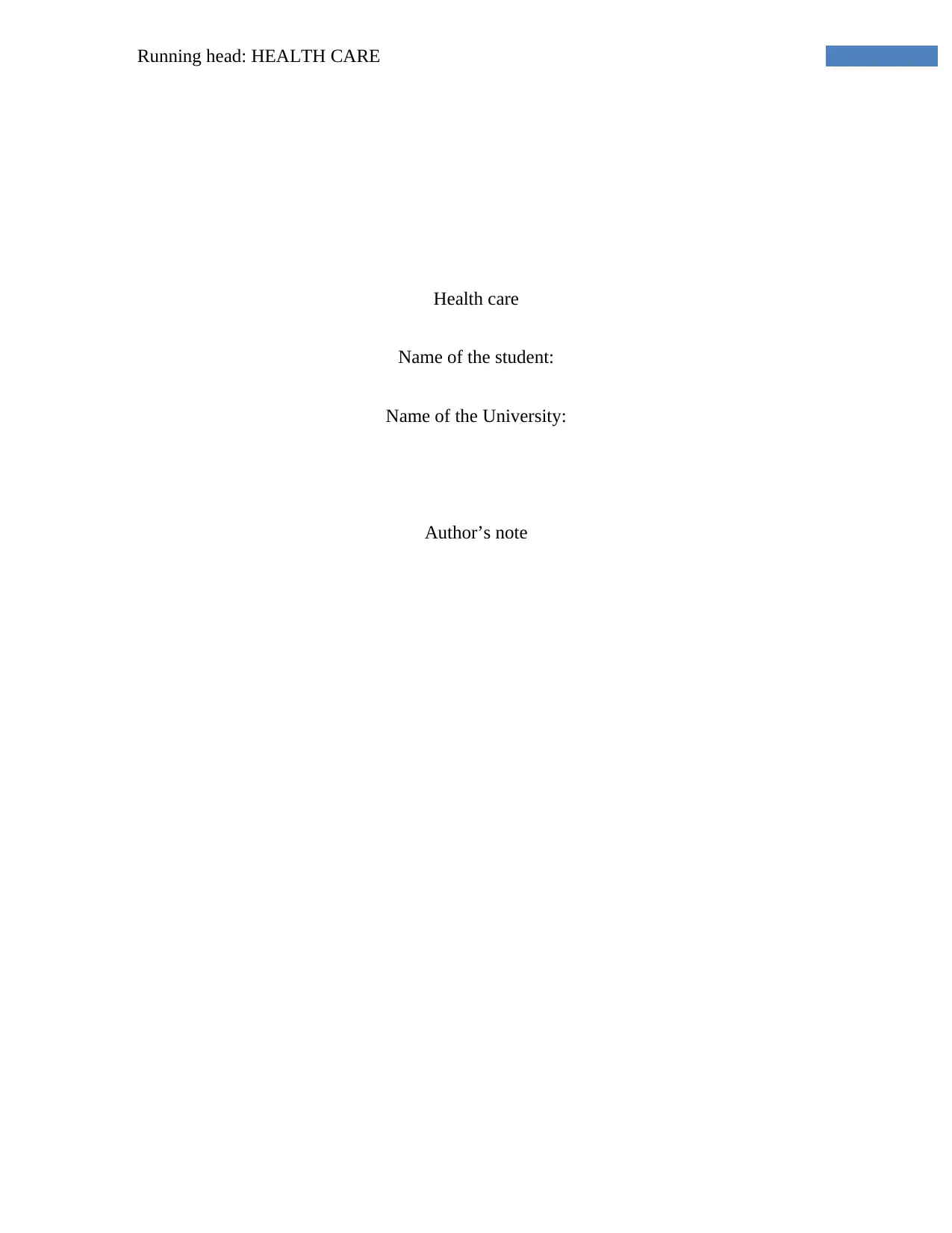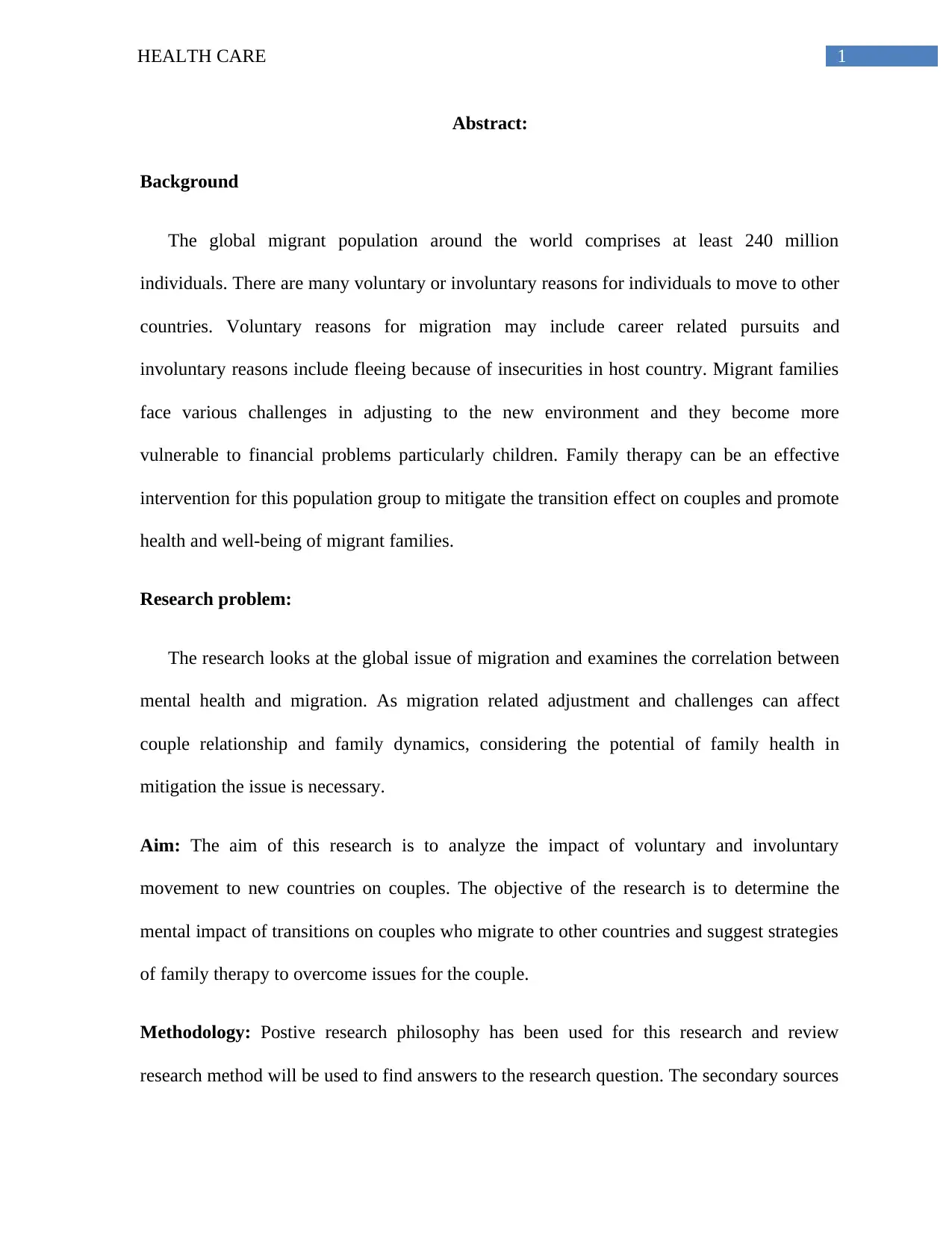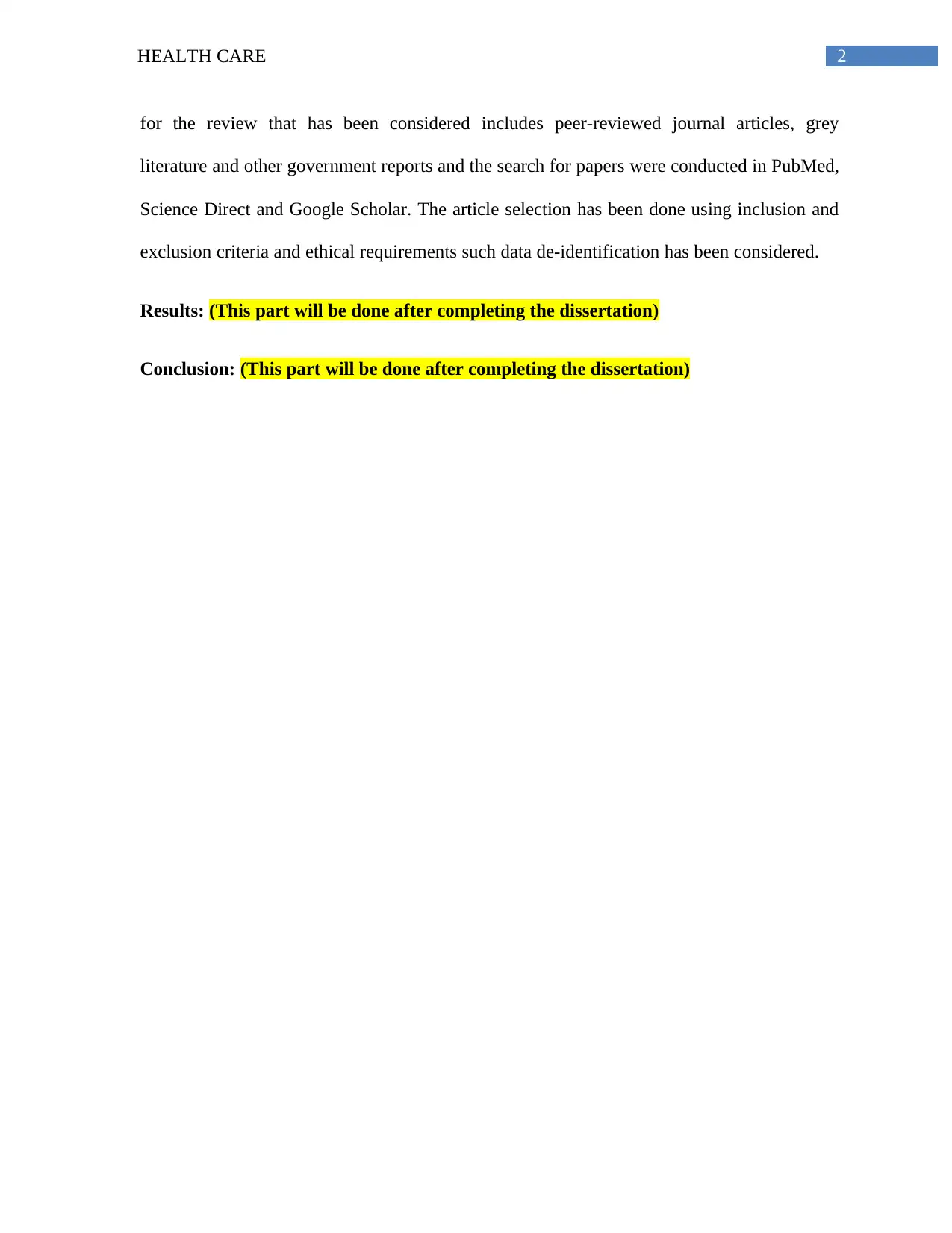Health Care Report: Migration, Mental Health, and Family Therapy
VerifiedAdded on 2022/08/13
|3
|341
|11
Report
AI Summary
This report examines the impact of both voluntary and involuntary migration on couples, focusing on the mental health challenges they face. It begins by highlighting the global prevalence of migration and the difficulties encountered by migrant families, including mental health issues, particularly among children. The research aims to analyze the effects of migration on couples and identify the need for family therapy interventions. The methodology involves a review of peer-reviewed articles, grey literature, and government reports, with ethical considerations for data de-identification. The report seeks to understand how migration affects couples' relationships and suggests strategies to improve mental well-being through family therapy.
1 out of 3










![[object Object]](/_next/static/media/star-bottom.7253800d.svg)